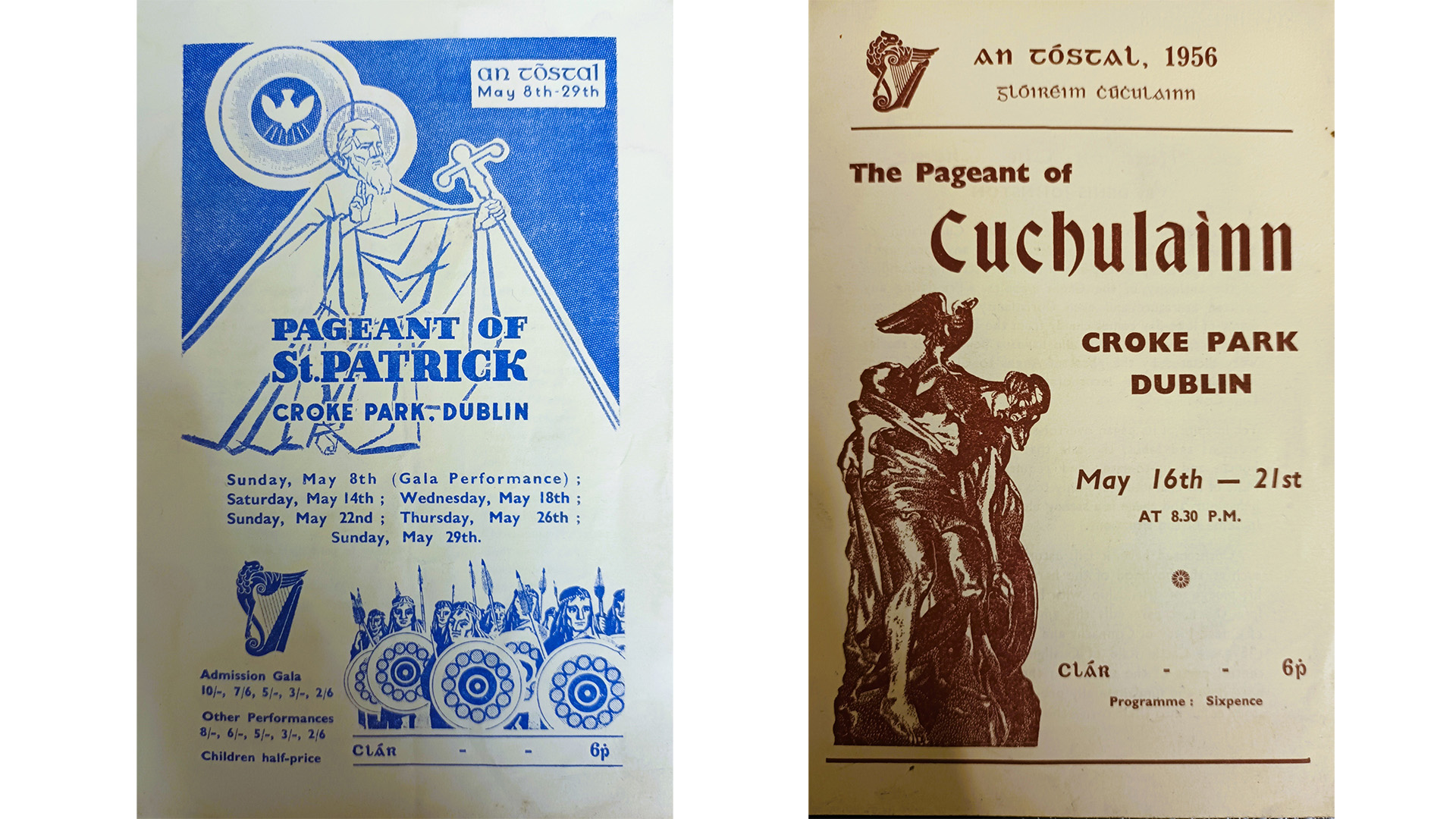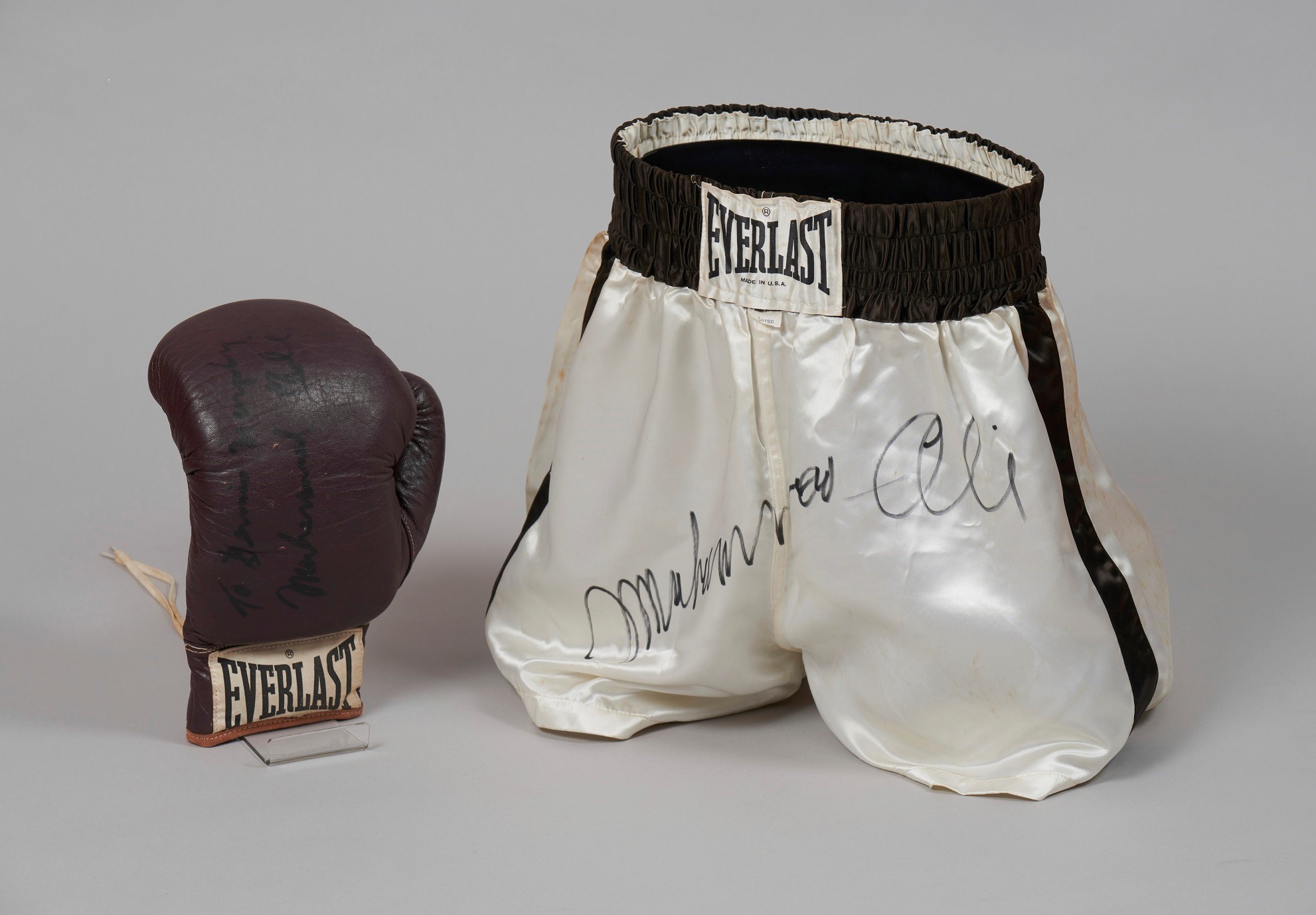Hidden Treasures of the GAA Archive
The treasures of the GAA Archive display seeks to put the spotlight on those hidden gems that the public rarely gets to view.
Events Held in Croke Park
Ed Sheeran 2015:
Ahead of Ed Sheeran’s return to Croke Park this week, we take a look back at when he played Croke Park in July 2015. There had been rumors before the show that Bono would be joining Ed on stage to perform in front of the 80,000 people who had come to Croke Park. Instead, Kodaline performed
All I Want with Sheeran on the Friday night, while The Frames frontman Glen Hansard, along with Kodaline joined Ed on the Saturday night to perform
Molly Malone (Cockles & Mussels) and
The Auld Triangle together. Photographs from the event can be found
here.
An Tóstal Pagents:
If you follow our GAA Museum Instagram, you have already seen The Pageant of St. Patrick which was held in Croke Park in May 1955 and kicked off An Tóstal for that year. An Tóstal was held in Ireland between 1951 and 1958 to attract tourists during the Easter off-season and celebrate Irish culture. Sporting events such as rugby and hockey games, parades, arts and literature festivals, chess competitions, along with pageants were held. The event must have been popular as the following year Croke Park welcomed The Pageant of Cuchulainn from May 16
th to May 21
st, 1956, again a part of An Tóstal.
The story of Cuchulainn was passed down by word of mouth before being written down over 800 years ago. Script writer Denis Johnson notes in the programme that the stories of Cuchulainn is “
one of the most striking examples of the antiquity of the Gaelic peoples” and references the Book of Leinster as a source of the story. Johnson goes on to state that the Pageant is “
limited to what can be performed on an open field and in the space of a couple of hours” but hopes it’s a “
worthy version of this essentially Irish contribution to the heritage of mankind.”

Pagaent Programmes
Muhammad Ali vs Al 'Blue' Lewis
Thousands of fans came to Croke Park to watch boxing legend Muhammad Ali take on Alvin Lewis on July 19th 1972 in a non-title bout. Lewis was long-term sparring partner of Ali and was promised a fight by the three time world heavyweight champion as a result. Lewis was outclassed in the fight, looking down and out by the 5th round. He rallied a slight comeback before the referee put a stop to the fight in the 11th round naming Ali the victor by TKO.
Ali travelled around Ireland before the fight in order to raise publicity. He gave a famous interview with RTE in which he made controversial comments about Joe Frazier, met with civil rights leader Bernadette Devlin McAliskey and was taught how to use a hurley and sliotar by former Kilkenny hurler Eddie Keher. Ali later visited Ireland again in 2003 and 2009.

Ali’s gloves and shorts from the fight are currently on display in the GAA Museum at Croke Park.
Hurling and How to Play It by An Ciotóg
First written in April 1916 according to its dedication on the third page, It notes that it was written for “
the boy hurlers of the North Monastery, Cork…in appreciation of the admirable spirit in which they accepted the joy of victory and the poignancy of defeat.”
The guide was aimed at those in charge of teams and
“Players desirous of improving their knowledge and ability in Ireland’s historic and unexcelled game” as stated on its front cover. Topics covered include picking of gear such as boots, hurls and togs, character study as an essential skill, how over-confidence spells defeat and twenty-six don’ts for hurlers which covers such advice as “
Don’t send the ball across your own goal” and “
Don’t forget a little powdered resin in wet weather.”
The guide also has a small number of interesting illustrations such as how teams should line out, the direction of stroke away from own goal and positions to take when playing with wind. The back cover is an advertisement for Whelan & Son ball makers who provided Eamon De Valera with the ball “
at the big match in Croke Park, April 13th 1919.” The dating of this advertisement would suggest that our copy on display was printed shortly after this April 13
th, 1919 date. The item will be on display in the GAA Museum until the end of November.
The GAA Archives and Library is actively seeking donations. If people are in a position to donate material to the GAA Library and Archive, they should contact the GAA Museum at 01-8192323 or [email protected]